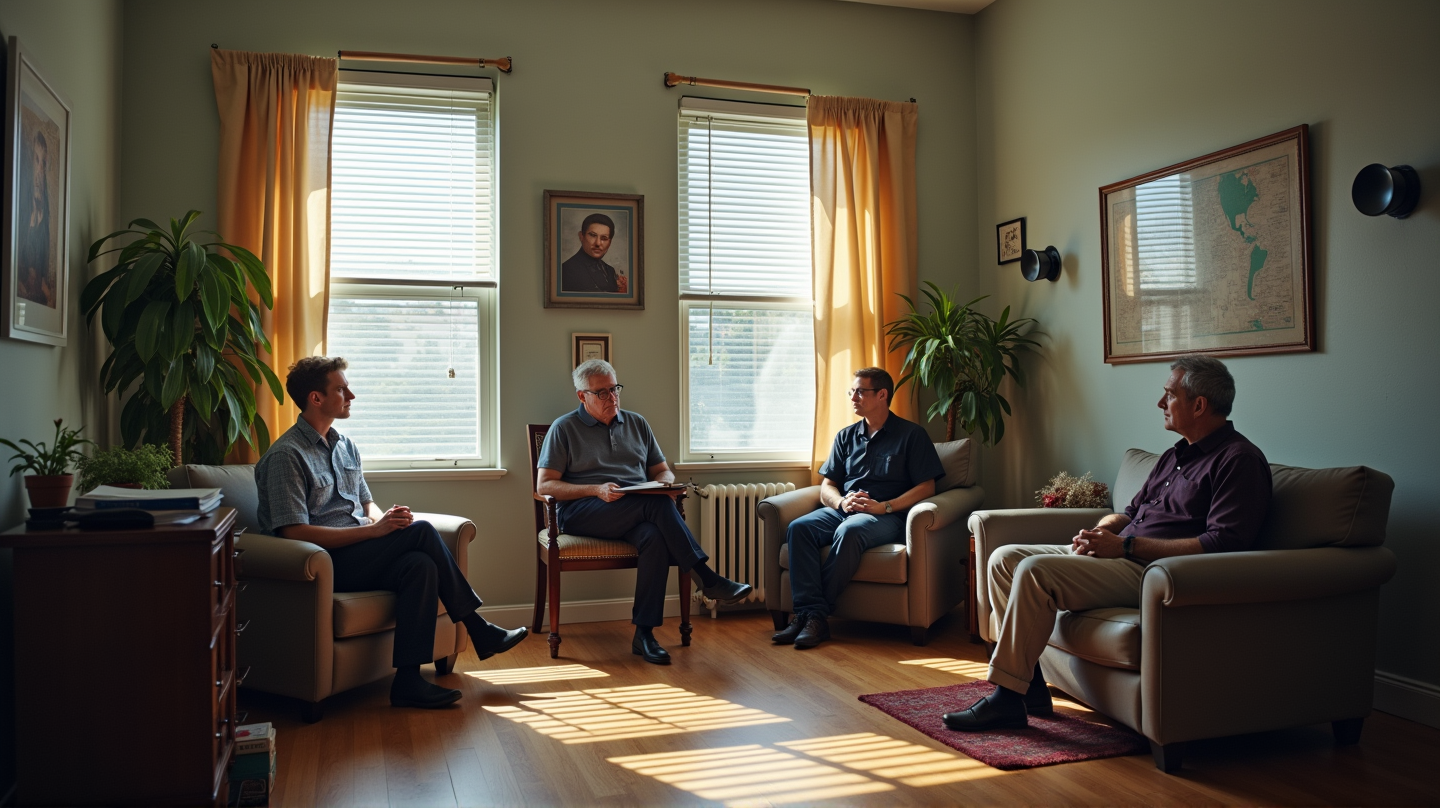Confidentiality at Risk: VA Therapists Face Privacy Challenges Amidst Budget Cuts
VA therapists must warn veterans about limited session privacy due to shared office spaces, as Trump administration enforces staff return and budget cuts.

In a turbulent atmosphere of fear and uncertainty, mental health clinicians within the US Department of Veterans Affairs (VA) find themselves compelled to deliver a disquieting message to their patients: “I cannot guarantee complete confidentiality.” This unsettling development comes amidst a backdrop of significant budget cuts and a mandated return-to-office directive set by the Trump administration, sparking widespread concern among therapists and veterans alike.
A Scripted Reality for Therapists
Therapists at VA facilities across the nation have been instructed to inform veterans upfront about the shared office environment during sessions. This directive, outlined in a memo obtained by NPR, requires therapists to disclose the potential lack of privacy — a cornerstone of effective mental health treatment. According to NPR, VA clinicians, newly thrust back into physical offices, are rallying to adapt to an environment that many fear is inhospitable to quality care.
Telehealth Transitions and Logistical Challenges
Many therapists were initially hired under telehealth arrangements, leaving physical office space scarce and creating concerns over the logistics of a sudden return. With shared “pod” working environments that resemble call centers, clinicians must navigate issues like parking, bathroom access, and workspace adequacy—all factors that contribute to the chaos of transitioning back to in-office work.
Political Tensions and Public Outcry
Politically, the situation has heightened tensions, with a faction of Democrats voicing their concerns to VA Secretary Doug Collins about these changes. They underline the inadequacy of the arrangements and question how these directives align with federal privacy protections. In response, VA representatives insist that privacy laws will be upheld, though therapists remain skeptical.
Ethical Concerns and Mental Health Implications
The American Psychological Association has openly criticized the return-to-office policy, emphasizing that it places ethical standards at risk. Mental health professionals are left grappling with difficult choices—balancing the ethical duty of patient confidentiality against potential disciplinary action for non-compliance with the new office mandates.
The Bigger Picture: Veterans at Risk
As therapists anticipate increased wait times and logistical hurdles, the broader implication is a potential compromise in veteran care. With veterans already at a higher risk of mental health crises, the uncertainty and disrupted services could exacerbate an already tenuous situation.
The intersection of budget cuts, mandated office returns, and threats to patient confidentiality draws a concerning picture for the future of veterans’ mental health care within the VA system. The road ahead remains fraught with challenges, as therapists and patients navigate these pressing changes, hoping for a resolution that preserves the sanctity of care and support for our nation’s veterans.





